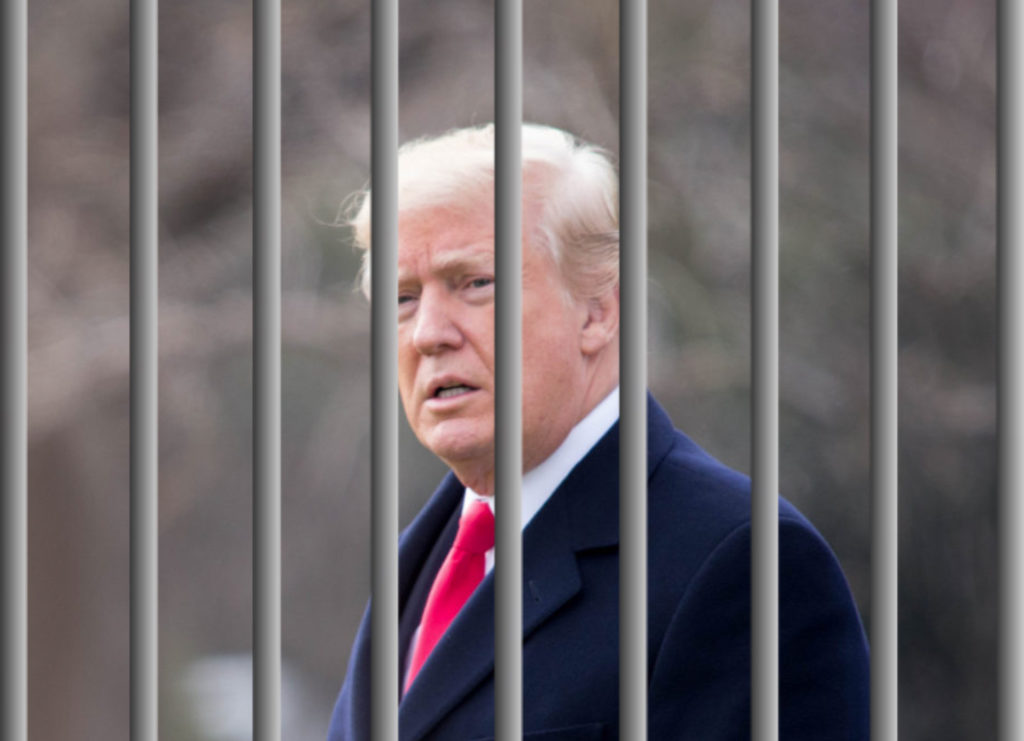The burden of motive

A lesson I learned from following the fascinating career of the late prosecutor Vincent Bugliosi is that motive for a crime isn’t needed to secure a conviction. The motive part of the oft-repeated formula “means, motive and opportunity” is neither necessary nor sufficient to secure a conviction in a court of law. But it helps.
To be sure, the motive sometimes may be hazy or difficult to understand. Bugliosi managed to secure a conviction of Charles Manson on the rather odd motive that Manson ordered members of his “family” to murder people in order to start a race war, after which he (Manson) would emerge as king of the post-apocalyptic world.
Motive could include voices in the head of a deranged person, or the blind obedience to cracked instructions from a cult leader. And, of course, Johnny Cash reminds us that he was stuck in Folsom Prison because he “shot a man in Reno just to watch him die.”
The question of Donald Trump’s motive for stealing (and hoarding) box after box of sensitive and top secret documents from the government has been mooted by many. The answers have run the gamut, from his being a pack rat, to his intent to sell the documents to foreign countries, to his intent to use the documents for blackmail, to his merely wanting them around to prove what a big shot he is, as if being president of the United States wasn’t somehow enough.
Whatever his motive may have been, it turns out that special prosecutor Jack Smith believes he knows exactly what it is. In a recent court filing Smith wrote, “what is in dispute is how [the secret document theft] occurred, why it occurred, what Trump knew, and what Trump intended in retaining them — all issues that the Government will prove at trial primarily with unclassified evidence.” [Italics mine.]
So clearly Mr Smith knows Trump’s motive for stealing those top secret government documents, but he’s elected not to tell us what that motive is in this court filing. All we know for sure is that he thinks he knows what it is, and he believes he can prove it in a court of law.
That is a considerable burden that Mr Smith has set for himself. Given that he has a history for caution and precision and that he has been scrupulous in his prosecutions of the past, I believe it’s a burden he will have no difficulty discharging.
But it occurs to me that Jack Smith has provided us with some insights into what Trump’s motive is not. For example, if his motive was that he’s merely a pack rat — a favourite motive frequently suggested by MAGA Republicans — there would be no need to spend a lot of court time “proving” such a thing.
Being a pack rat isn’t against the law. Being a showoff isn’t against the law. Selling America’s state secrets, on the other hand, is very much against the law. Blackmailing the federal government by threatening to reveal America’s state secrets is also very much against the law.
Trump has a history of divulging America’s state secrets. For example, on May 10, 2017, Trump gave Israeli intelligence concerning a pending Isis attack on a Syrian village to the Russian foreign minister Sergei Lavrov. In April, 2021, Trump diverged the strengths of America’s nuclear submarines to an Australian businessman. In July of 2021, Trump revealed the contents of General Mark Milley’s secret plans for a hypothetical attack on the nation of Iran to some guests.
So we know that Trump wouldn’t think twice about giving up America’s secrets for free. Would he give them up for money or favours? That’s the question. And it’s a question that Jack Smith apparently knows the answer to. And, as ever, ladies and gentlemen, brothers and sisters, comrades and friends, stay safe.

Robert Harrington is an American expat living in Britain. He is a portrait painter.
